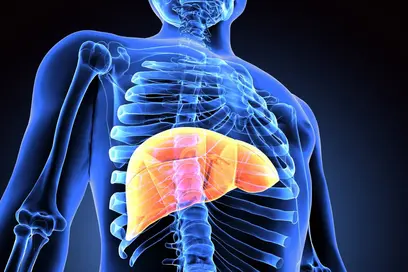Medulloblastoma are among the most common malignant brain tumors affecting children. They spread from the cerebellum to the surrounding tissue and can also spread to other parts of the central nervous system via the cerebrospinal fluid. Because these tumors grow rapidly, physicians do not have much time to find a suitable treatment.
Physicians at the Hopp Children's Cancer Center (KiTZ) specialize in characterizing the molecular properties of children's cancers in order to be able to recommend other treatment options besides standard therapies, and to develop new therapies with a focus on the mode of action.
Together with colleagues from EMBL, the German Cancer Consortium (DKTK) and the St. Jude Children's Research Hospital in Memphis, USA, the KiTZ researchers conducted the most comprehensive medulloblastoma-related genetic investigation to date. They analyzed the genome and tumor genome of 800 children, young people and adults with medulloblastoma and compared the genetic data with data from healthy individuals. In doing so, they came across a particularly striking hereditary difference in children and young people with brain tumors in the Sonic Hedgehog medulloblastoma subgroup.
A hereditary genetic defect in 15 percent of cases meant that patients were no longer able to produce the elongator complex protein 1 (ELP1) in the tumor. The elongator complex protein is involved in ensuring that proteins are properly assembled and folded in line with the genetic code. The latest findings show that, without ELP1, much of the protein metabolism is disturbed: “The assembly and folding of larger proteins in particular does not function properly any more, and the accumulation of these non-functioning or malfunctioning proteins places the cells under permanent stress,“ says KiTZ Director Stefan Pfister, who is a head of department at the DKFZ and an expert in targeted therapies within the DKTK. “Hundreds of proteins are misregulated in this way, including proteins that are important for nerve cell development.“
By analyzing the genome of some parents and grandparents, the researchers also established that the cancer-activating ELP1 genetic defect is hereditary. “That makes this the most common congenital genetic defect associated with medulloblastoma to date“, says Jan Korbel, a co-author of the study who works at EMBL. Lead author Sebastian Waszak adds: “The latest results show that around 40 percent of children and young people who suffer from this subtype of medulloblastoma have a congenital genetic predisposition for it. That is a much higher proportion than we had assumed.“ Identifying hereditary causes of cancer in advance can help to make the right therapeutic decision and reduce the risk of relapse in children. “For example, in the case of a hereditary predisposition for DNA breaks, certain chemotherapies or radiotherapy can lead to secondary tumors. In such cases, the first disease should not be treated too aggressively,“ says Stefan Pfister.
Original Publication:
S. Waszak, G. Robinson, et al. Germline elongator mutations in sonic hedgehog medulloblastoma. In: Nature (Online Publication 1st April 2020). DOI: 10.1038/s41586-020-2164-5
An image for this press release is available for download at:
https://www.kitz-heidelberg.de/fileadmin/media/kitz/forschung/Proteinfaltung_Nature_Pfister.jpg
Caption:
Without the ELP1 assembly and folding of proteins does not function properly any more.
Note on use of images related to press releases
Use is free of charge. The German Cancer Research Center (Deutsches Krebsforschungszentrum, DKFZ) permits one-time use in the context of reporting about the topic covered in the press release. Images have to be cited as follows: “Source: A.Moosmann“.
Distribution of images to third parties is not permitted unless prior consent has been obtained from DKFZ's Press Office (phone: ++49-(0)6221 42 2854, E-mail: presse@dkfz.de). Any commercial use is prohibited.



